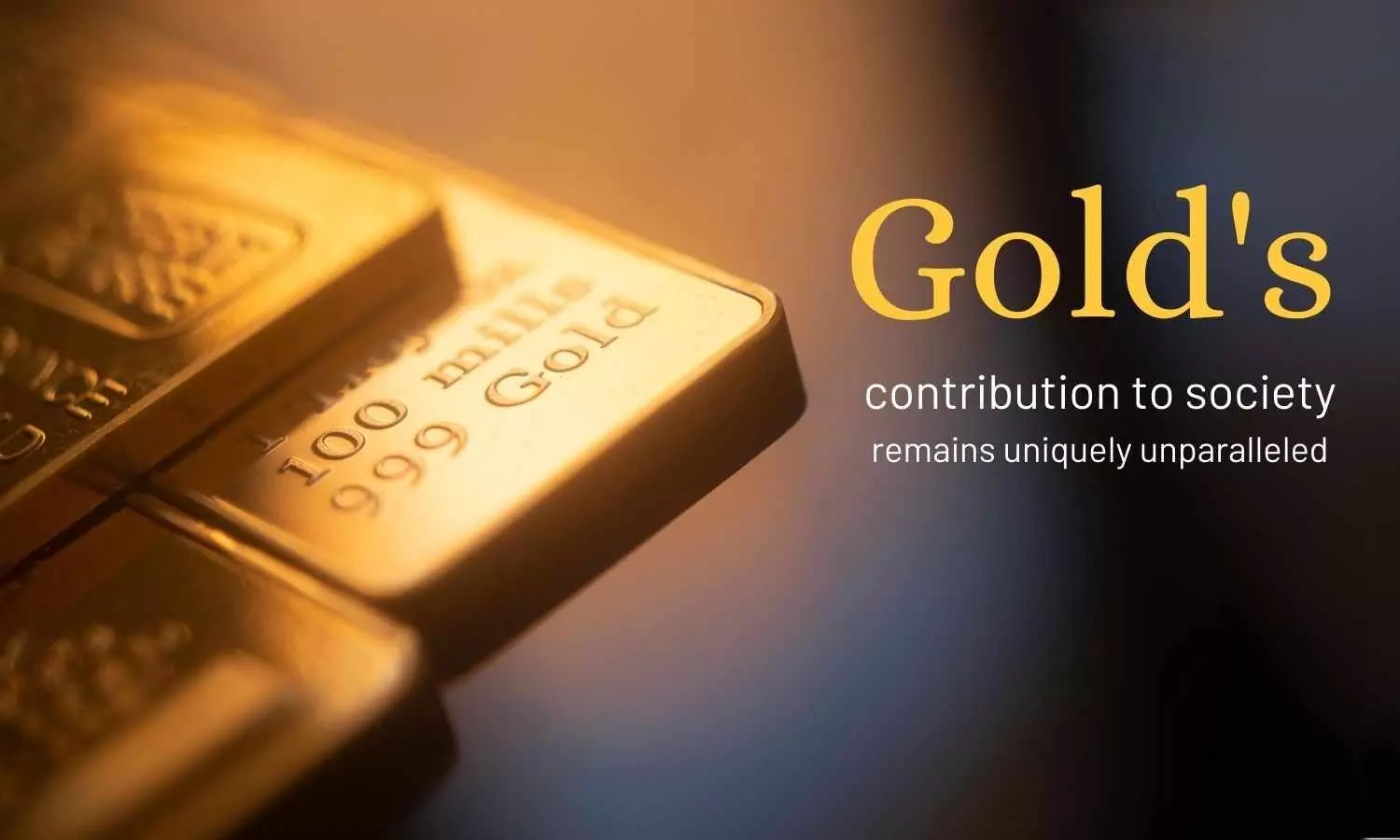Gold's contribution to society remains uniquely unparalleled
image for illustrative purpose

The perception of gold as a cumbersome immobile asset doesn’t reflect the realities of today’s gold market. Gold flows freely, with around $163 bn traded on a daily basis — exceeding that of major financial assets. Because of its liquidity, gold is useful both in times of expansion and recession. And if investors have illiquid assets that prove difficult to sell, they can still use gold to meet their most immediate needs. The World Gold Council (WGC) has long believed that responsible gold mining supports sustained socio-economic development in countries and communities that host gold mining operations, through its contribution to jobs, tax revenue and investment in local communities.
The gold industry makes a meaningful contribution to the UN’s Sustainable Development Goals. It also plays a critical role in supporting societies’ needs and is considered important across cultures globally. Not surprisingly, it is recognised as a source of financial security, which is also critical to a multitude of technological and healthcare applications. Gold mining is a major economic driver for many countries.
Well-managed, transparent and accountable resource extraction can be a major contributor to economic growth due to the creation of employment and business opportunities for local people. As well as direct and indirect jobs, gold mining also brings foreign direct investment (FDI) and tax revenues to countries. Often operating in remote locations, gold mining companies invest in infrastructure and utilities. In addition to supporting the needs of a gold mine, these improvements to roads, water and electricity supplies are a long-term benefit to businesses and communities across the area, that outlives the production years of a gold mine.
As gold miners decarbonise their energy sources, they can also bring cleaner power to local communities and in some locations they can bring low carbon electricity to the region, with potential development benefits well beyond the mine. Gold miners frequently work in partnership with host governments, communities and NGOs in the countries they operate in, identifying how best to augment a wider social and economic development. Gold mining companies also have ethical and commercial incentives to improve the health and education of the communities that they operate in. Many invest in social infrastructure, including educational institutions and health centres that in course of time improve opportunities and the wellbeing of local people.
In addition, many miners provide healthcare services to their workforce and surrounding communities — from Covis-19 relief to tackling malaria. Responsible gold mining helps advance progress against the UN Sustainable Development Goals. As an extraordinary metal, gold has an array of unique properties that makes it irreplaceable in today’s world. It is used extensively in electronics as well as in many other applications. It is now one of the most studied nano-materials and has been incorporated in a variety of products and devices.
For example, gold nanoparticles are used in the billions of rapid medical diagnostic test kits produced annually, including in the Covid-19 antigen and antibody tests. Beyond gold’s role in our everyday lives, it is also at the cutting edge of scientific advancement. The documentary series ‘The Golden Thread’ highlight many of gold’s unique but often less known or hidden applications, from space exploration to wearable diagnostic electronics. Given its uniqueness, gold will continue to shape the world around us.

